
Politics
12:55, 13-Sep-2017
Rohingya crisis: Myanmar denounces 'ethnic cleansing' allegations
CGTN
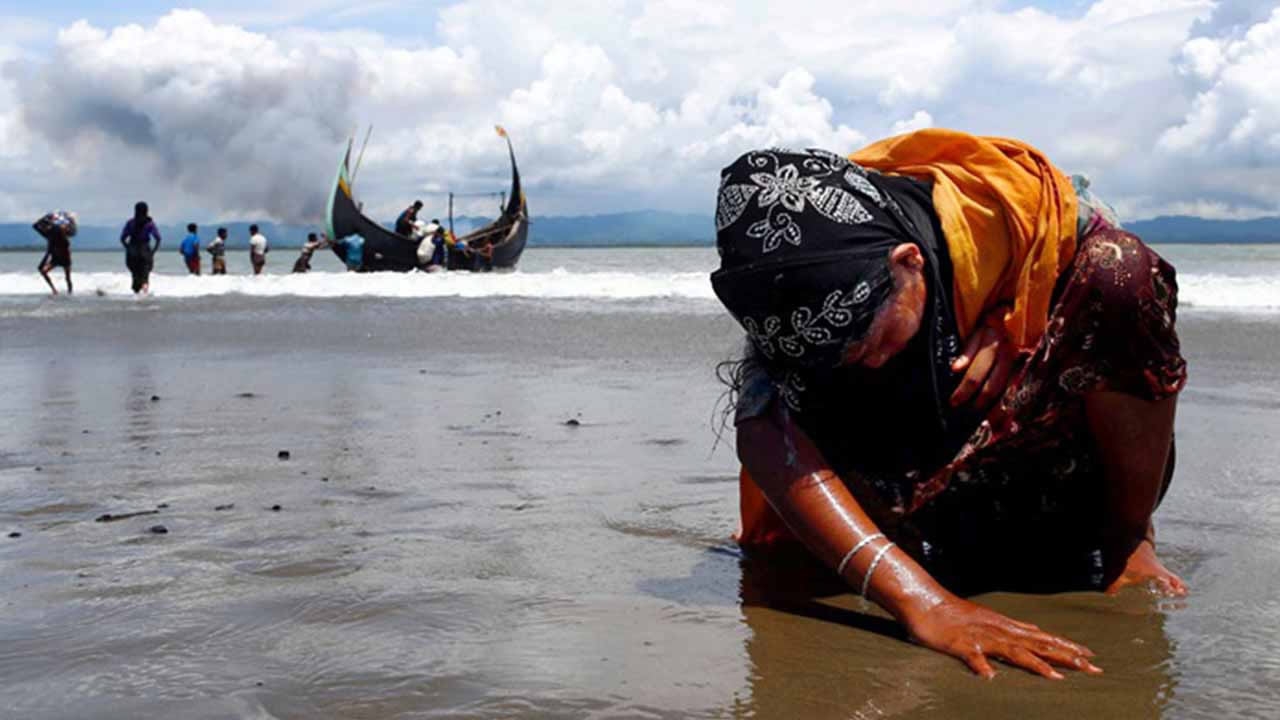
Myanmar's ambassador to the United Nations, Htin Lynn, has denounced allegations of "ethnic cleansing" against Rohingya in the country as unhelpful and wrong and blamed Rohingya militants for the violence that has resulted in an exodus of Muslim refugees to neighboring Bangladesh.
"The terms 'crimes against humanity' and 'ethnic cleansing' carry very serious connotations. They can only be used in the most responsible manner and they can only be founded on legal and judicial determinations," he told the UN Human Rights Council in Geneva, adding that "democratic Myanmar shall never tolerate such atrocities."
On Monday, Zeid Raad Al Hussein, the UN High Commissioner for Human Rights, urged the country to end its "cruel military operation," calling is "a textbook example of ethnic cleansing."
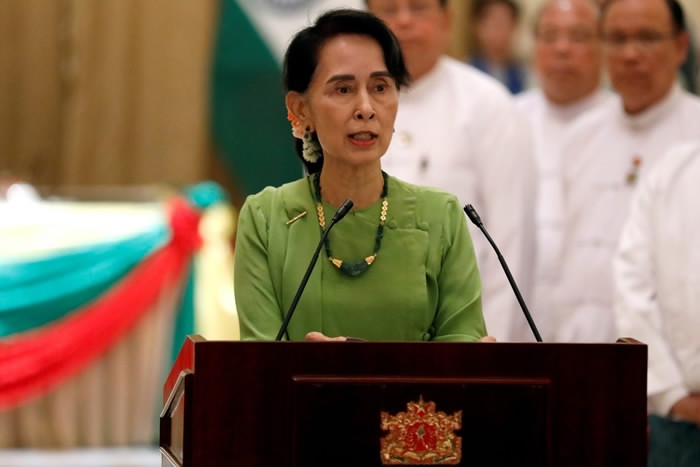
Myanmar's State Counselor Aung San Suu Kyi has blamed "terrorists" for "a huge iceberg of misinformation" on the strife in the northwestern state of Rakhine. /Reuters Photo
Myanmar's State Counselor Aung San Suu Kyi has blamed "terrorists" for "a huge iceberg of misinformation" on the strife in the northwestern state of Rakhine. /Reuters Photo
The Rohingya, a stateless, mostly Muslim minority in Buddhist-dominated Myanmar, are viewed as illegal immigrants by the government and have been denied citizenship.
Some 370,000 Rohingya living in Rakhine State have crossed the border into Bangladesh since violence broke out last month.
The UN Security Council is due to meet Wednesday to discuss the situation.
China expressed support for the Myanmar government's efforts to maintain peace and stability in Rakhine State on Tuesday, calling on the international community to create a sound environment to solve the crisis.
"We condemn the violent attacks which happened in Rakhine State in Myanmar," Foreign Ministry spokesman Geng Shuang said at a press conference.
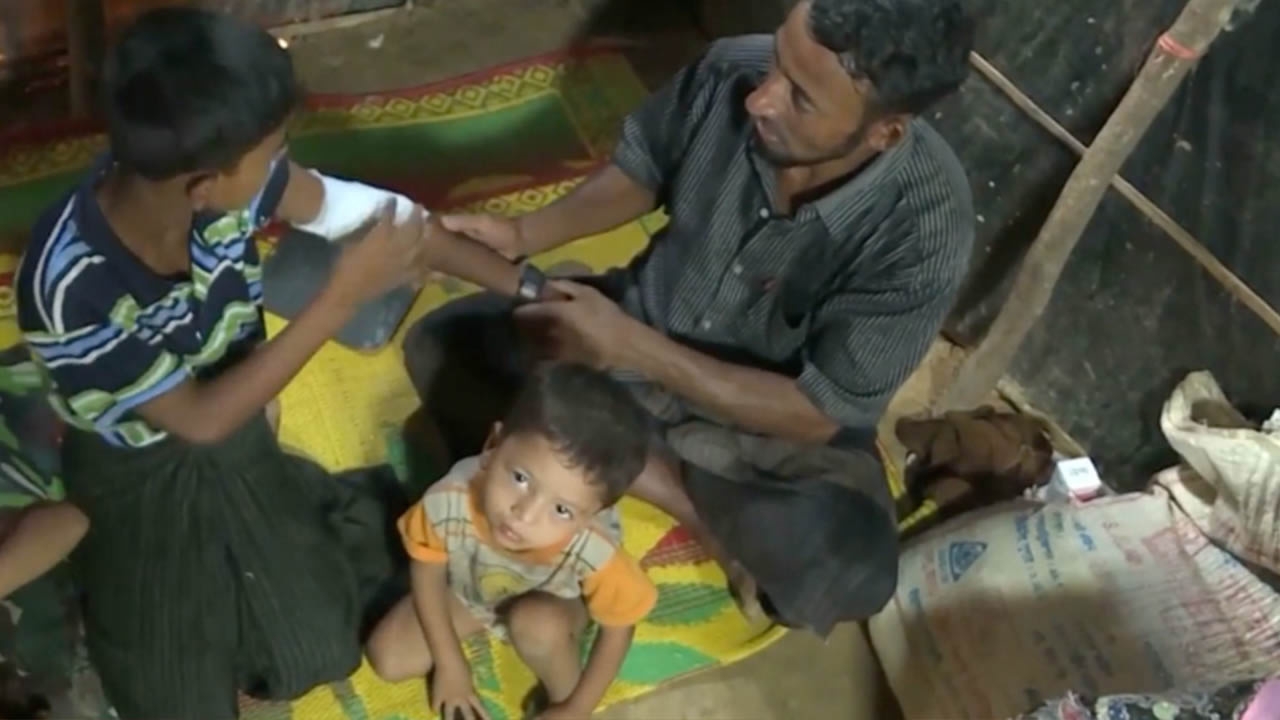
Is Aung San Suu Kyi to blame?
Last week, UN Secretary General Antonio Guterres took a rare step over the issue, writing a letter to the council urging members to send a message to Myanmar authorities to end the security operation.
Guterres spoke to Myanmar's de facto leader Aung San Suu Kyi last week and is expected to once again make an appeal to end the crisis during a press conference at the UN headquarters on Wednesday, his spokesman said.
Two leading human rights groups – Human Rights Watch and Amnesty International – said on Tuesday they were disappointed with Suu Kyi, a Nobel peace prize laureate and once a darling of the rights movement, who has been accused of turning a blind eye to the violence.
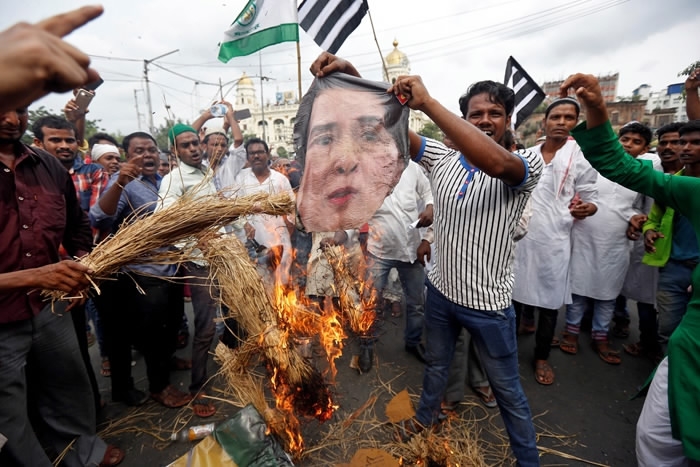
People burn an effigy depicting Myanmar's State Counselor Aung San Suu Kyi during a protest rally in Kolkata, India, September 11, 2017. /Reuters Photo
People burn an effigy depicting Myanmar's State Counselor Aung San Suu Kyi during a protest rally in Kolkata, India, September 11, 2017. /Reuters Photo
"Silence is not helping the fact that we have a growing xenophobic rhetoric and climate which is whirling around Yangon at the moment," said Tirana Hassan, Amnesty's crisis response director. "We need to see leadership from her to actually de-escalate and not remain silent."
The treatment of about 1.1 million Rohingya Muslims has emerged as the biggest challenge for Suu Kyi since she came to power two years ago.
Amid criticism of her, former British Ambassador to Myanmar Sir John Jenkins suggested her critics were "too quick to condemn" the politician who only got a "fragile" electoral triumph in 2015.
"It is simply untrue to suggest that Suu Kyi does not care about Rakhine Muslims," Jenkins wrote in a commentary on Arab News.
"Even to start to repair the fabric of Burma's (Myanmar's) wounded society is a generational task. Everyone has a claim on her attention and that of the new and hobbled Myanmar government," he said.
She needs international understanding to deal with numerous challenges, including the powerful military's "suspicion of democracy," the immense task to fix the economy and separatism in northern states, Jenkins added, stressing that "she needs to tread carefully."
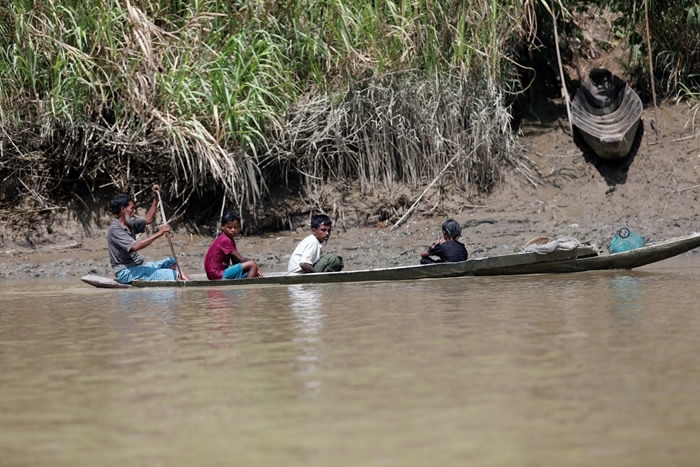
Rohingya people on a boat near a village outside Buthidaung, Rakhine State, Myanmar, September 11, 2017. /Reuters Photo
Rohingya people on a boat near a village outside Buthidaung, Rakhine State, Myanmar, September 11, 2017. /Reuters Photo
On Tuesday, US Senate Republican leader Mitch McConnell said he would not support a resolution targeting Suu Kyi over the treatment of Rohingya Muslims.
"I don't favor a resolution going after her," McConnell, who has been engaged with issues related to Myanmar for years, describing Suu Kyi as the country's "greatest hope."
Senators John McCain, a Republican, and Richard Durbin, a Democrat, introduced a resolution last week condemning the violence and urging Suu Kyi to act.
But McConnell said he did not support the resolution. "My personal view is America kind of singling her out, and lecturing her when she's in a very challenging position is not helpful. So...I don't intend to be a part of that," he said at a weekly news conference by the Senate's Republican leaders.
(With input from AFP, Reuters)
3124km

SITEMAP
Copyright © 2018 CGTN. Beijing ICP prepared NO.16065310-3
Copyright © 2018 CGTN. Beijing ICP prepared NO.16065310-3